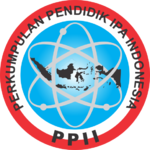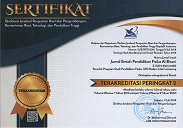The performances of undershot waterwheel with butterfly-shaped blades and the radius of grasshopper's elbow: The utilization efforts for river electrical energy potential
Abstract
Keywords
Full Text:
PDFReferences
Adanta, D., Kurnianto, M. A. F., Warjito, W., Nasution, S. B. S., & Budiarso. (2020). Effect of the number of blades on undershot waterwheel performance for straight blades. IOP Conference Series: Earth and Environmental Science, 431(1). https://doi.org/10.1088/1755-1315/431/1/012024
Adanta, D., Budiarso, Warjito, & Siswantara, A. I. (2018). Assessment of turbulence modeling for numerical simulations into pico hydro turbine. Journal of Advanced Research in Fluid Mechanics and Thermal Sciences, 46(1), 21–31.
Adanta, D., Budiarso, Warjito, Siswantara, A. I., & Prakoso, A. P. (2018). Performance comparison of NACA 6509 and 6712 on pico hydro type cross-flow turbine by numerical method. Journal of Advanced Research in Fluid Mechanics and Thermal Sciences, 45(1), 116–127.
Ali, B., & Kumar, A. (2017). Development of water demand coefficients for power generation from renewable energy technologies. Energy Conversion and Management, 143, 470–481. https://doi.org/10.1016/j.enconman.2017.04.028
Arias-Gaviria, J., van der Zwaan, B., Kober, T., & Arango-Aramburo, S. (2017). The prospects for Small Hydropower in Colombia. Renewable Energy, 107, 204–214. https://doi.org/10.1016/j.renene.2017.01.054
Balkhair, K. S., & Rahman, K. U. (2017). Sustainable and economical small-scale and low-head hydropower generation: A promising alternative potential solution for energy generation at local and regional scale. Applied Energy, 188, 378–391. https://doi.org/10.1016/j.apenergy.2016.12.012
Brykała, D., & Podgórski, Z. (2020). Evolution of landscapes influenced by watermills, based on examples from Northern Poland. Landscape and Urban Planning, 198(October 2019), 87–100. https://doi.org/10.1016/j.landurbplan.2020.103798
Denny, M. (2004). The efficiency of overshot and undershot waterwheels. European Journal of Physics, 25(2), 193–202. https://doi.org/10.1088/0143-0807/25/2/006
Dewatama, Fauziah, M., Safitri, H., & Adhisuwignjo, S. (2020). Design and implementation : Portable Floating Design and implementation : Portable Floating Pico-Hydro. https://doi.org/10.1088/1757-899X/732/1/012049
Fajri, M. A., Elektro, T., & Sriwijaya, U. (2019). Desain Pembangkit Listrik Tenaga Pikohidro Menggunakan Program Arduino Uno Pada Penambahan Variasi Aliran Air . 23–24.
Faria, F. A. M. d., & Jaramillo, P. (2017). The future of power generation in Brazil: An analysis of alternatives to Amazonian hydropower development. Energy for Sustainable Development, 41, 24–35. https://doi.org/10.1016/j.esd.2017.08.001
Franco, W., Ferraresi, C., & Revelli, R. (2019). Functional analysis of piedmont (Italy) ancient water mills aimed at their recovery or reconversion. Machines, 7(2). https://doi.org/10.3390/machines7020032
Ho-Yan, B. (2012). Design of a Low Head Pico Hydro Turbine for Rural Electrification in Cameroon. 1–175. https://atrium.lib.uoguelph.ca/xmlui/handle/10214/3552
Irwan, L. K. W., Atus, B., Josefine, E. L., & Herby, C. P. T. (2019). Performance of undershot waterwheel curved blade of the laboratory scale. Materials Science Forum, 967 MSF, 250–255. https://doi.org/10.4028/www.scientific.net/MSF.967.250
Jamlay, K., Sule, L., & Hasan, D. (2016). Analisis Perilaku Aliran Terhadap Kinerja Roda Air Arus Bawah Untuk Pembangkit Listrik Skala Pikohidro. Dinamika Teknik Mesin, 6(1). https://doi.org/10.29303/d.v6i1.25
Junaidi, A., & Hendri, A. (2014). Model Fisik Kincir Air Sebagai Pembangkit Listrik. 1(2).
Kholiq, I. (2015). Pemanfaatan Energi Alternatif sebagai Energi Terbarukan untuk Mendukung Subtitusi BBM. In Jurnal IPTEK (Vol. 19, Issue No 2).
Kougias, I., Aggidis, G., Avellan, F., Deniz, S., Lundin, U., Moro, A., Muntean, S., Novara, D., Pérez-Díaz, J. I., Quaranta, E., Schild, P., & Theodossiou, N. (2019). Analysis of emerging technologies in the hydropower sector. Renewable and Sustainable Energy Reviews, 113(June), 109257. https://doi.org/10.1016/j.rser.2019.109257
Krajačić, G., Vujanović, M., Duić, N., Kılkış, Ş., Rosen, M. A., & Ahmad Al-Nimr, M. (2018). Integrated approach for sustainable development of energy, water, and environment systems. Energy Conversion and Management, 159 (3), 398–412. https://doi.org/10.1016/j.enconman.2017.12.016
Lindawati, Jumarang, M. I., & Kushadiwijayanto, A. A. (2018). Karakteristik perambatan gelombang pasang surut di Estuari Kapuas Kecil. Jurnal Laut Katulistiwa, 1(3), 61–66. https://jurnal.untan.ac.id/index.php/lk/article/view/29859
Manzano-Agugliaro, F., Taher, M., Zapata-Sierra, A., Juaidi, A., & Montoya, F. G. (2017). An overview of research and energy evolution for small hydropower in Europe. Renewable and Sustainable Energy Reviews, 75(May 2015), 476–489. https://doi.org/10.1016/j.rser.2016.11.013
Masud, I. A., & Suwa, Y. (2018). Effect of Blade Inclination Angle on the Efficiency of Hydrokinetic Turbine in an Undershoot Zero Head System. 6(6). https://doi.org/10.18178/ijmmm.2018.6.6.413
McManamay, R. A., Parish, E. S., DeRolph, C. R., Witt, A. M., Graf, W. L., & Burtner, A. (2020). Evidence-based indicator approach to guide preliminary environmental impact assessments of hydropower development. Journal of Environmental Management, 265(March), 110489. https://doi.org/10.1016/j.jenvman.2020.110489
Ming, B., Liu, P., Cheng, L., Zhou, Y., & Wang, X. (2018). Optimal daily generation scheduling of large hydro–photovoltaic hybrid power plants. Energy Conversion and Management, 171(April), 528–540. https://doi.org/10.1016/j.enconman.2018.06.001
Moe, K. P., Myat, E. E., Khaing, C. C., & NWE, Z. M. (2019). Design of 10 kW Water Wheel for Micro-Hydro Power. International Journal of Scientific Engineering and Technology Research, 08, 344–349.
Moshfegh, B. (2011). World Renewable Energy Congress – Sweden Editor. World Renewable Energy Congress -Sweden, undefined-undefined.
Müller, G., & Kauppert, K. (2004). Performance characteristics of water wheels. Journal of Hydraulic Research, 42(5), 451–460. https://doi.org/10.1080/00221686.2004.9641215
Nishi, Y., Hatano, K., & Inagaki, T. (2017). Study on performance and flow field of an undershot cross-flow water turbine comprising different number of blades. Journal of Thermal Science, 26(5), 413–420. https://doi.org/10.1007/s11630-017-0956-1
Nishi, Y., Hatano, K., Okazaki, T., Yahagi, Y., & Inagaki, T. (2020). Improvement of performance of undershot cross-flow water turbines based on shock loss reduction. International Journal of Fluid Machinery and Systems, 13(1), 30–41. https://doi.org/10.5293/IJFMS.2019.13.1.030
Nishi, Y., Inagaki, T., Li, Y., & Hatano, K. (2015). Study on an Undershot Cross-Flow Water Turbine with Straight Blades. International Journal of Rotating Machinery, 2015. https://doi.org/10.1155/2015/817926
Nishi, Y., Inagaki, T., Li, Y., Omiya, R., & Fukutomi, J. (2014). Study on an undershot cross-flow water turbine. Journal of Thermal Science, 23(3), 239–245. https://doi.org/10.1007/s11630-014-0701-y
Nishi, Y., Yahagi, Y., Okazaki, T., & Inagaki, T. (2020). Effect of flow rate on performance and flow field of an undershot cross-flow water turbine. Renewable Energy, 149, 409–423. https://doi.org/10.1016/j.renene.2019.12.023
Norhadi, A., Marzuki, A., Wicaksono, L., & Yacob, R. A. (2015). Studi Debit Aliran Pada Sungai Antasan Kelurahan Sungai Andai Banjarmasin Utara. Jurnal Poros Teknik, 7(1).
Pérez-Sánchez, M., Sánchez-Romero, F. J., Ramos, H. M., & López-Jiménez, P. A. (2017). Energy recovery in existing water networks: Towards greater sustainability. Water (Switzerland), 9(2), 1–20. https://doi.org/10.3390/w9020097
Permanasari, A. A., Sukarni, Puspitasari, P., Utama, S. B., & Yaqin, F. A. (2019). Experimental Investigation and Optimization of Floating Blade Water Wheel Turbine Performance Using Taguchi Method and Analysis of Variance (ANOVA). IOP Conference Series: Materials Science and Engineering, 515(1). https://doi.org/10.1088/1757-899X/515/1/012086
Pranoto, B., Aini, S. N., Soekarno, H., Zukhrufiyati, A., Rasyid, H. Al, & Lestari, S. (2018). ( Studi Kasus Di Wilayah Sungai Serayu Opak ) The Potential Of Microhydro In Irrigation Area ( Case Study In Serayu Opak River Basin ). 77–86.
Punys, P., Kasiulis, E., Kvaraciejus, A., Dumbrauskas, A., Vyčienė, G., & Šilinis, L. (2017). Impacts of the EU and national environmental legislation on tapping hydropower resources in Lithuania – A lowland country. Renewable and Sustainable Energy Reviews, 80(March), 495–504. https://doi.org/10.1016/j.rser.2017.05.196
Punys, P., Kvaraciejus, A., Dumbrauskas, A., Šilinis, L., & Popa, B. (2019). An assessment of micro-hydropower potential at historic watermill, weir, and non-powered dam sites in selected EU countries. Renewable Energy, 133, 1108–1123. https://doi.org/10.1016/j.renene.2018.10.086
Quaranta, E., Katopodis, C., Revelli, R., & Comoglio, C. (2017). Turbulent flow field comparison and related suitability for fish passage of a standard and a simplified low-gradient vertical slot fishway. River Research and Applications, 33(8), 1295–1305. https://doi.org/10.1002/rra.3193
Quaranta, E. (2018). Stream water wheels as renewable energy supply in flowing water: Theoretical considerations, performance assessment and design recommendations. Energy for Sustainable Development, 45, 96–109. https://doi.org/10.1016/j.esd.2018.05.002
Quaranta, E. (2020). Estimation of the permanent weight load of water wheels for civil engineering and hydropower applications and dataset collection. Sustainable Energy Technologies and Assessments, 40(June), 100776. https://doi.org/10.1016/j.seta.2020.100776
Quaranta, E., Bonjean, M., Cuvato, D., Nicolet, C., Dreyer, M., Gaspoz, A., Rey-Mermet, S., Boulicaut, B., Pratalata, L., Pinelli, M., Tomaselli, G., Pinamonti, P., Pichler, R., Turin, P., Turrin, D., Foust, J., Trumbo, B., Ahmann, M., Modersitzki, M., … Bragato, N. (2020). Hydropower case study collection: Innovative low head and ecologically improved turbines, hydropower in existing infrastructures, hydropeaking reduction, digitalization and governing systems. Sustainability (Switzerland), 12(21), 1–79. https://doi.org/10.3390/su12218873
Quaranta, E., & Müller, G. (2018). Sagebien and Zuppinger water wheels for very low head hydropower applications. Journal of Hydraulic Research, 56(4), 526–536. https://doi.org/10.1080/00221686.2017.1397556
Quaranta, E., & Revelli, R. (2017a). CFD simulations to optimize the blade design of water wheels. Drinking Water Engineering and Science, 10(1), 27–32. https://doi.org/10.5194/dwes-10-27-2017
Quaranta, E., & Revelli, R. (2017b). Hydraulic Behavior and Performance of Breastshot Water Wheels for Different Numbers of Blades. Journal of Hydraulic Engineering, 143(1), 04016072. https://doi.org/10.1061/(asce)hy.1943-7900.0001229
Quaranta, E., & Revelli, R. (2018). Gravity water wheels as a micro hydropower energy source: A review based on historic data, design methods, efficiencies and modern optimizations. Renewable and Sustainable Energy Reviews, 97(November 2017), 414–427. https://doi.org/10.1016/j.rser.2018.08.033
Quaranta, E., & Wolter, C. (2021). Sustainability assessment of hydropower water wheels with downstream migrating fish and blade strike modelling. Sustainable Energy Technologies and Assessments, 43(November 2020), 100943. https://doi.org/10.1016/j.seta.2020.100943
Setyawan, E. Y., Djiwo, S., Praswanto, D. H., Suwandono, P., Siagian, P., & Malang, U. W. (2019). Design of Low Flow Undershot Type Water Turbine. 2(October), 50–55.
Siswantara, A. I., Budiarso, Prakoso, A. P., Gunadi, G. G. R., Warjito, & Adanta, D. (2018). Assessment of turbulence model for cross-flow pico hydro turbine numerical simulation. CFD Letters, 10(2), 38–48.
Sritram, P., & Suntivarakorn, R. (2017). Comparative Study of Small Hydropower Turbine Efficiency at Low Head Water. Energy Procedia, 138, 646–650. https://doi.org/10.1016/j.egypro.2017.10.181
Suhartono, Fatmawati, S., & Rudianto, R. (2017). Engineering of Floating Power Plant for River Flow Type Undershot 2 Waterwheels With 9 Fixed Blade and Butterfly Blade on Picohydro Scale. 8(1), 45–52.
Sule, L., Mochtar, A. A., & Sutresman, O. (2020). Performance of undershot water wheel with bowl-shaped blades model. International Journal of Technology, 11(2), 278–287. https://doi.org/10.14716/ijtech.v11i2.2465
Suparman. (2017). Desain Pembangkit Listrik Tenaga Piko Hidro. Eeccis, 11(2), 82–88.
Warjito, Adanta, D., Budiarso, & Prakoso, A. P. (2018a). The effect of bucket number on breastshot waterwheel performance. IOP Conference Series: Earth and Environmental Science, 105(1). https://doi.org/10.1088/1755-1315/105/1/012031
Yah, N. F., Idris, M. S., & Oumer, A. N. (2016). Numerical Investigation on Effect of Immersed Blade Depth on the Performance of Undershot Water Turbines. MATEC Web of Conferences, 74, 5–9. https://doi.org/10.1051/matecconf/20167400035
Yahagi, Y., Nishi, Y., OkagiI, T., & Inagaki, T. (2016). Performance analysis of an undershot cross-flow water turbine based on the flow near the runner. Transactions of the JSME (in Japanese), 82(841), 16-00271-16–00271. https://doi.org/10.1299/transjsme.16-00271
Zhou, Y., Chang, L. C., Uen, T. S., Guo, S., Xu, C. Y., & Chang, F. J. (2019). Prospect for small-hydropower installation settled upon optimal water allocation: An action to stimulate synergies of water-food-energy nexus. Applied Energy, 238(October 2018), 668–682. https://doi.org/10.1016/j.apenergy.2019.01.069
DOI: http://dx.doi.org/10.24042/jipfalbiruni.v11i1.10060
Refbacks
- There are currently no refbacks.

Jurnal ilmiah pendidikan fisika Al-Biruni is licensed under a Creative Commons Attribution-ShareAlike 4.0 International License.
![]()








